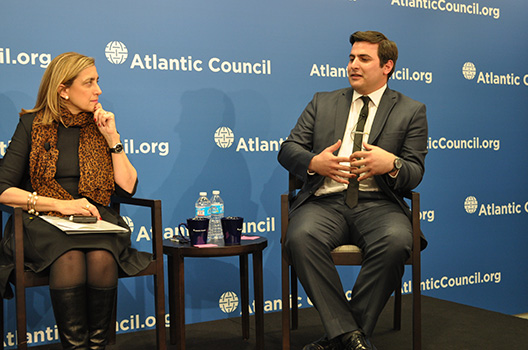 An emerging class of social entrepreneurs and social impact investors across Latin America are driving innovation, growth, and poverty alleviation. These pioneers have brought about huge quality-of-life changes for millions of citizens through innovations ranging from pay-as-you-go solar power to new farming practices. Today, the private sector provides governments with new and innovative policies to reduce poverty and enfranchise millions.
An emerging class of social entrepreneurs and social impact investors across Latin America are driving innovation, growth, and poverty alleviation. These pioneers have brought about huge quality-of-life changes for millions of citizens through innovations ranging from pay-as-you-go solar power to new farming practices. Today, the private sector provides governments with new and innovative policies to reduce poverty and enfranchise millions.
On February 12, the Adrienne Arsht Latin America Center, in partnership with The Huffington Post, hosted an event, Social Innovators in Latin America: A Disruptive Force for Change. Real-life innovators from around the world who have pioneered new practices in impact investment and entrepreneurship probed the biggest issues facing the sector today. Speakers included Susana García-Robles, head of the Inter-American Development Bank’s Multilateral Investment Fund (MIF); Alberto Beeck, prominent Peruvian businessman and Founder of the Georgetown University’s Beeck Center for Social Impact and Innovation; and Wifredo Fernandez, an entrepreneur himself and now Director of CREATE Incubator at Miami Dade College, as well as Cofounder of The LAB Miami. Gabriel Sánchez Zinny, Senior Nonresident Fellow for Social Impact at the Latin America Center, moderated the discussion.
Latin America Center Director Peter Schechter set the stage by laying out the value-add of this sector, emphasizing its ability to transform the way decision-makers confront society’s biggest challenges. Social impact investing offers alternatives to the policy community—alternatives that shift development away from traditional models that in many cases have proven to be unsustainable.
The role of government in this sector is new territory, but pilot projects like Start-Up Chile in recent years have generated incredible results and are sparking the creation of similar models across Latin America. The key, according to Wifredo Fernandez, is for governments to support entrepreneurs, but at an arm’s length—avoiding dictating the direction of the sector, but readily and steadily engaging throughout the learning process. Looking ahead to the future, Fernandez said, we need more entrepreneurs moving to the policy side, because they understand this dynamic better than anyone.
Alberto Beeck drew on his experience as a long-time investor to describe what success looks like in an entrepreneur. Though the startup world typically focuses on the innovative idea behind a business, Beeck said he takes a different approach—choosing to invest in a person’s character and drive over his or her idea as the key metric for indicating future success.
When asked about the future of the Multilateral Investment Fund, Susana García-Robles surprised everyone by saying she hopes it becomes obsolete. When the MIF and funds like it disappear, she explained, that means that the social impact investment sector has established itself as a sustained force, and no longer needs the catalytic aid that organizations like the IDB provide. This would be the ultimate goal.
